- Home
- Robin Cook
Cell Page 10
Cell Read online
Page 10
The old car was not equipped with an airbag. Sal was launched through the car’s disintegrating windshield like a rocket-propelled grenade. Headfirst his body buried itself into the display board. He was killed instantly.
Sal’s smartphone followed him through the windshield, deflecting off a shard of glass that sent it skidding across the sign-in desk and into the lap of a shocked Debbie Waters.
For a split second no one in the emergency department moved. Then, as if a television image had suddenly been un-paused, all hell broke loose.
14
EMERGENCY DEPARTMENT
L.A. UNIVERSITY MEDICAL CENTER
WESTWOOD, LOS ANGELES, CALIFORNIA
TUESDAY, JULY 1, 2014, 11:07 A.M.
George felt and heard the tremendous crash. His first thought was earthquake. He’d felt a few temblors in his three years in Los Angeles, but this didn’t seem to fit the bill. It was too localized. His mind raced through the other possibilities, arriving at the one option almost everyone considered these days: Was it a bomb? A terrorist act? All around him, people were leaping out of their seats and heading for the door.
Dust and smoke streamed through the shattered floor-to-ceiling windows. A trail of debris was strewn across the lobby, ending at the smoldering wreckage of an automobile at the base of what had been the ten-foot-high LED screen. Three staffers had surrounded the fuming hulk of the vehicle and were dousing it with fire extinguishers. Patients who had been waiting to be seen were either scrambling to get out the entry doors or were standing immobile, staring vacantly at the scene with shock. Luckily, it appeared that no one, either patient or employee, had been hurt in the crash.
George noticed Debbie Waters trying to get things organized, pointing here and there with a cell phone in her hand, as if it were a conductor’s baton. George scanned the room, coming to rest upon the wrecked vehicle. He froze, recognizing the car immediately, even in its mangled state. Its vintage and rarity left few conclusions for George to draw. His eyes moved past the large fragmented windshield to where a number of orderlies and doctors were extracting a mutilated body.
Rushing forward, George got a look, better than he really wanted. It was Sal. His body was a mess, with major head and torso damage. But George knew it was his friend, and the familiar T-shirt clinched it, even if Sal’s face was unrecognizable. As they pulled the body free, it was placed on a gurney and rushed down to one of the trauma rooms.
At that instant the Los Angeles Fire and Police Departments invaded the ER. A number of firemen in full gear came in through the missing windows. Senior hospital officials arrived as the remaining patients were escorted away from the debris.
George rushed down the main hallway, grabbed one of the portable X-ray machines, and pushed his way into the trauma room where they had taken Sal. By the time he got there the doctors had decided that the patient was beyond saving, mostly due to the massive head trauma.
“No ID. At the moment anyway,” the head of the trauma team said to the ER nurse holding a tablet in her hand, entering notes. “List him as a John Doe—”
“His name is Sal,” George interrupted. “Salvatore DeAngelis. He lives at 1762 South Bentley Avenue, apartment 1D.”
The group turned to him with surprised, quizzical looks.
“He is my neighbor.”
George walked off down the hall as Sal’s body was covered by a white sheet. Another iDoc patient was dead!
• • •
So, other than his Alzheimer’s symptoms,” the LAPD detective said to George, “were there indications of any other factors at play? Drugs, alcohol?” The detective was trying to be gentle, obviously picking up on the fact that George had an emotional attachment to the victim beyond being a neighbor.
“No. Nothing,” George replied. He was at a table in the ER staff lounge, his head in his hands, still trying to digest what had happened. The detective, seated across from George, was typing notes into his smartphone.
“Had he been drinking much lately?” he asked. “I mean, did he drink during the day as far as you know?”
“No. Sal didn’t drink alcohol, not even beer.”
“Were you aware he had been diagnosed with depression and was taking medication to treat it?” The detective asked.
“No—I mean, he hadn’t mentioned it. But I wouldn’t have expected him to, either. A lot of people, even someone as open as Sal was, don’t talk about psychological problems. He was a gentle, seemingly cheerful guy. I’ve never known him to have ever done anything reckless or illegal.”
“I understand.” The detective took some more notes.
George eyed the policeman’s phone, noticing a thin red bar across the top of the display face. Even though he was reading upside down, he was pretty sure the word in the bar was RECORDING.
“Are you taping this?” George asked, surprised.
“Yeah,” the detective replied. “It makes things easier later. People tend to forget details.” He glanced up.
“Don’t you have to ask my permission first?” George asked. He was surprised and, needing something to take his mind off the reality of Sal’s death, found himself irritated that he was being recorded without his knowledge.
“No. It doesn’t work that way,” the detective responded offhandedly. He returned to his line of questioning. “Were you aware that Mr. DeAngelis had an appointment here today?”
George ignored the question. “If you’re recording the conversation, why are you taking notes, too?”
The detective stopped typing and looked up. “I take notes of my initial thoughts of questions that may not be appropriate at the time. Or maybe my own reaction about something that was said. I know how to do my job, Dr. Wilson. As I assume you know how to do yours.”
“I’m sorry,” George said. “I’m upset.”
“It’s okay.”
“Anyway, I was not.”
The detective looked confused. “You were not what?”
“I was answering your question. You asked me if I was aware that Mr. DeAngelis had an appointment at the medical center today. I was not. I knew he had been coming here for tests recently, but he hadn’t shared the details about them, and I didn’t ask. We have HIPAA rules. A right to privacy. That extends beyond these walls.” George had done his fair share of violating HIPAA rules, especially after Kasey had passed away, but without knowing why, he wanted to rub this guy’s nose in it. “You probably shouldn’t have even told me he was taking medication for depression when you get right down to it. I’m not his personal physician. His current doctor is a . . .” George motioned to the detective’s cell phone. He trailed off, unsure of just what he meant to say.
“Is a what?”
“Nothing. It doesn’t matter.”
The detective stared at George in silence. “His family,” he finally said, moving on to another topic.
“Estranged at some level. I’d met his two sisters once. Actually I had been thinking about trying to contact them this week.”
“Why was that?”
“Because Sal’s Alzheimer’s was advancing. I was hoping to get them involved in his life.”
The detective nodded. “Okay.” He stood up. “I think I have the gist of it. Thanks for your help.”
“Sure. What is the ‘gist’ that you got, anyway?”
“That the man got confused and overwhelmed while driving his vehicle. Likely due to his Alzheimer’s. And a tragic accident resulted. We’re lucky no one else was injured. Or killed. Remember that crash out at the Santa Monica farmers’ market a few years back? A gentleman, in his mid-eighties, I think, plowed his car right through the market’s produce stands, killing nine people, including a three-year-old girl. Another fifty-some people were injured. By comparison, we got off easy here today.”
“Yeah. Easy,” George mumbled.
“Thanks again for
your time.” George watched the officer turn off his phone and then leave.
• • •
George made his way back to the ER reading room and threw himself into a chair. Carlos was glad to see him, since a number of X-rays needed review. George thought keeping busy might be the best thing he could do to feel better. He delved into them but struggled to keep his mind focused. He had the paranoid feeling that death was mocking him. He knew such thoughts were irrational, but that didn’t make them any less disturbing.
“There’s one more,” Carlos said, bringing up an X-ray of an arm fracture on the monitor. “I think it’s a—”
“Excuse me,” George said, cutting off Carlos as he abruptly stood. “I need to step out a moment.”
Carlos looked at him surprised. “Yeah. Sure. Everything okay?”
George remained silent a moment. “Not really.” He turned and left the room.
“Will you be back soon so we can finish?” Carlos called, but the door had already closed, and George apparently hadn’t heard him.
15
AMALGAMATED HEALTHCARE HEADQUARTERS
CENTURY CITY, LOS ANGELES, CALIFORNIA
TUESDAY, JULY 1, 2014, 12:11 P.M.
Bradley Thorn’s office was on the top floor of the tallest building in Century City. It was both extravagant and massive. His ego demanded it, as did his sense of inferiority, instilled in him at a young age by a domineering, sadistic father. Bradley heard “the hospital must have switched babies” routine too many times to count. It was mean and abusive on his father’s part. But then his father’s personality had enabled him to rise to the top of the health care game. The father had been ruthless, developing a computerized method of paying doctors as little as possible and delaying the payment for as long as possible, which had amassed him a fortune and ultimately the leadership of Amalgamated Healthcare.
Bradley inherited control of the company just two short years earlier, after the senior Thorn suffered a massive stroke. It was a tragedy for the previously robust Robert Thorn. For his son, it had been a godsend.
Bradley was physically fit and in excellent health. He was confident women found him attractive, although he was never sure if that was enhanced by thoughts of his money or not.
At the moment, Thorn was meeting with Marvin Neumann, a celebrated hedge fund genius who was thinking of putting some $500 million into Amalgamated to take iDoc international. His money would also help with the acquisition of more hospitals. Thorn had told him that’s where the big profits were, especially since Amalgamated would be paying itself for hospital services.
Neumann in turn told Thorn he had some demands to go with his money. He wanted a seat on the board of either Amalgamated or iDoc. Which one, he hadn’t decided. Neumann also cited medicine’s tendency to overemphasize the good and ignore the bad in their testing results. He wanted to be absolutely certain that iDoc’s beta test had been as well received as Thorn had reported at the presentation.
“Absolutely!” Thorn protested. “If anything, we have been conservative in our appraisal. Please be assured that I’m not about to risk my reputation or the company’s for a short-term gain.”
“That’s comforting to hear,” Neumann said. What he didn’t say, though he was pretty sure of it, was that Thorn would likely risk everything to be regarded as a hero. The guy was both pretentious and insecure, and everyone knew the stories of him and his father. But family and personal failings aside, the hedge fund guru felt Thorn had stumbled upon something big, and he wanted a piece of it. He just needed to have a position to be able to watch the company’s progress and steer it away from trouble if need be. Health care in the United States was a notoriously politicized arena. That’s why he would eventually insist upon seats on both boards. But in these preliminary negotiations he would suggest that one would suffice. He’d demand both board seats when Thorn was about to lay hands on the cash. It was a ploy Neumann had used to great effect in the past.
“The beta test has been a fantastic success far exceeding our most optimistic predictions,” Thorn bragged. “As we said, the patients love it and it is going to truly solve the primary-care shortage worldwide. And lower costs. What more can you ask?” Thorn jabbed his finger at Neumann, “And iDoc is going to revolutionize addiction treatment. Whatever the addiction, iDoc will offer immediate, real-time feedback when a client-patient indulges—”
“Okay, okay, I get it,” Neumann interrupted. He didn’t need to hear a repeat of what had been said at the presentation.
“Well, I’ll get back to you about a board seat,” Thorn said. “It’ll have to be brought up with the current board.”
“Of course,” Neumann said, standing.
“Thanks for coming in.” Thorn stood as well and shook hands with Neumann, escorting him out of his office.
Neumann paused at the office door. “Say hello to your father for me. We used to play tennis on occasion on our Sun Valley trips. I hope he’s doing well.”
“I will. I will,” Thorn replied with a smile plastered on his face.
As Thorn waved his good-bye to Neumann he glimpsed Langley stretched out in a club chair in the anteroom, leafing through a magazine. Thorn shot a glance at his secretary.
She gave him a shrug, mouthing the words: “He just showed up.”
Irritated, Thorn beckoned Langley into his office. Thorn had a built-in distaste for creative types like Langley.
Thorn pointed to a chair and walked around behind his desk.
Once seated, Langley cleared his throat. “We’ve investigated this supposed glitch that I told you about yesterday. At first I thought it was a regression of the bug we’d seen during the first few weeks of the beta test. But it’s not. Nor is it actually a glitch in a literal sense, even though we can call it that. The application just made determinations from a different set of criteria and learning points than we would have suspected.”
Thorn was irritated. It seemed to him that Langley was deliberately trying to confuse him. “I’m not following you. What the hell do you mean by a ‘literal sense’?”
“The algorithm is weighting variables differently from how we thought it would. That’s the core of the problem, if it is a problem.”
Thorn threw up his hands, exasperated. “You know the key to running a large business like Amalgamated? You delegate. You hire good people and get out of their way. Now you want to drag me into the weeds? Have you considered the fact that if I am consumed with the details of your job, it might hinder my ability to act effectively for the company as a whole? My fund-raising is essential to securing future contracts for Amalgamated. Are you following me?”
“This is not a routine programming problem. And it is spreading.”
“What do you mean ‘spreading’?”
“Exactly what the word means. It started at Santa Monica University Hospital but now has appeared at Harbor University and even at the L.A. University Medical Center.”
“Shit!” Thorn exclaimed, running a hand nervously through his hair. “What kind of numbers are we talking about?”
“Not many yet. Besides the two cases at Santa Monica University Hospital, there have been two cases at Harbor University Hospital and two at L.A. University Medical Center.”
“Have these all occurred since we spoke yesterday?”
“Not the ones at Santa Monica, but the other four, yes.”
“And they all resulted in death?”
“Unfortunately, yes!”
“Are we going to see a surge in this problem or is this going to remain an isolated phenomenon?”
“I can’t say for certain; I can only guess.”
“Okay, guess!”
“I don’t think we will see a surge. But nor do I think the issue is going to go away. In fact I am sure it is not.”
“All right, you win. I need you to explain to me what is going on,
but not in your usual tech-speak.”
Langley leaned forward. “These deaths are a direct outgrowth of the heuristic nature of the algorithm—”
Thorn put his hand up. “What do you mean by ‘heuristic’? You’ve bantered this term around without really explaining it to me.”
“As I said yesterday and have told you before, the application is capable of learning. We have all seen that iDoc learns. It progressively makes its own decisions, decisions that were not programmed into it per se, but that are based on past outcomes.”
“That means the iDoc algorithm is getting better because of its heuristic nature. Isn’t that what you are saying?”
“Exactly. It is learning and getting better faster than we predicted.”
“But still there have been these six deaths.”
“Correct. But remember the algorithm is not aware that it’s doing anything unwanted. In fact, it is doing what it thinks is best for everyone, the victims included.”
“So how many deaths do you think there will be?”
“As I said, there is not going to be an avalanche. Right now we are seeing an incidence of just over three hundredths of one percent. I don’t see it ever going over four hundredths. And as I said, the Independent Payment Advisory Board set up to control costs for Medicare and Medicaid is intrigued by what is happening and is looking more favorably on iDoc as a result.”
“How did they learn about this glitch?”
“As part of their due diligence in evaluating iDoc for Medicare and Medicaid beneficiaries, we allowed them access to our servers. They became aware of the deaths at the same time as we did. They are intrigued.”
“So they don’t want us to stop the glitch.”
“Their only concern, and a big one, is that it remain undiscoverable, for obvious reasons. If the media were to get hold of the story, it would be an unmitigated disaster.”
Thorn nodded that he couldn’t agree more. “Okay! All this is highly classified; no one gets wind of it. Make a few inquiries; see what ripples resulted from it so far. You said there were a couple of cases at University Medical. Clayton’s over there, have him sniff around to make sure no one is suspicious. Tell him I asked for his services specifically. But do not give him the details, just the basics. Again, how many are in the loop as of now?”

 Shock
Shock Mutation
Mutation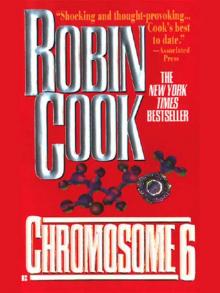 Chromosome 6
Chromosome 6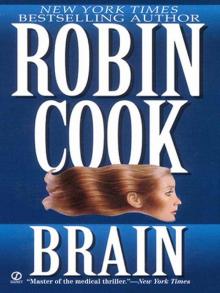 Brain
Brain Intervention
Intervention Invasion
Invasion The Legend of Parzival: The Epic Story of His Quest for the Grail
The Legend of Parzival: The Epic Story of His Quest for the Grail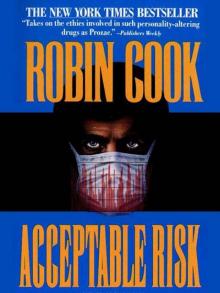 Acceptable Risk
Acceptable Risk Cell
Cell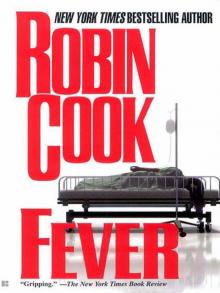 Fever
Fever Death Benefit
Death Benefit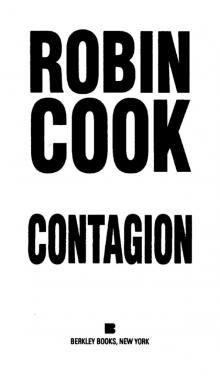 Contagion
Contagion Mindbend
Mindbend Coma
Coma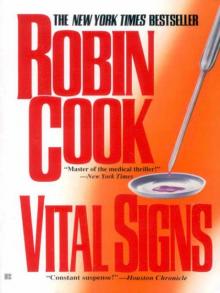 Vital Signs
Vital Signs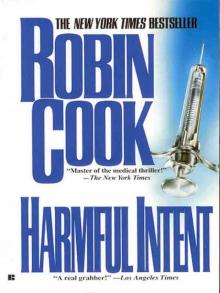 Harmful Intent
Harmful Intent Critical
Critical Foreign Body
Foreign Body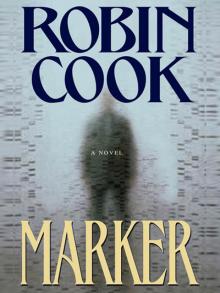 Marker
Marker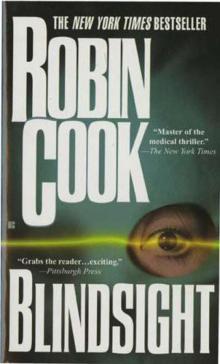 Blindsight
Blindsight Terminal
Terminal Sphinx
Sphinx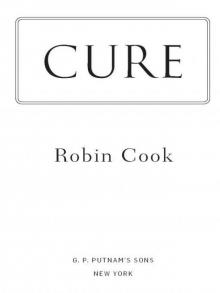 Fatal Cure
Fatal Cure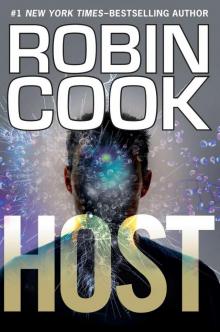 Host
Host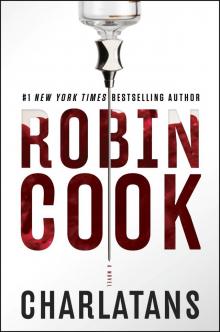 Charlatans
Charlatans Crisis
Crisis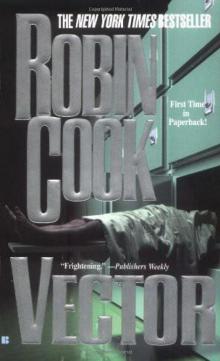 Vector
Vector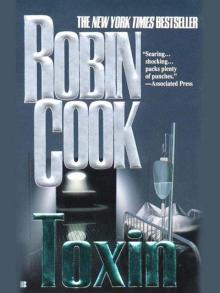 Toxin
Toxin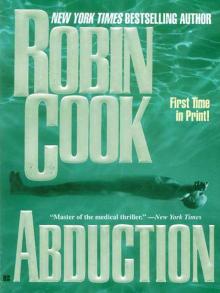 Abduction
Abduction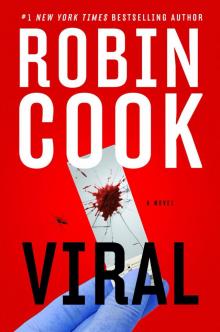 Viral
Viral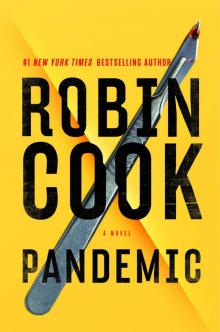 Pandemic
Pandemic Outbreak
Outbreak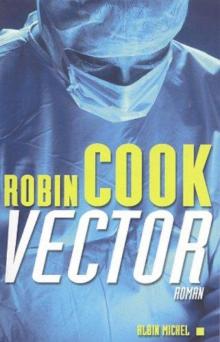 Vector js&lm-4
Vector js&lm-4 Godplayer
Godplayer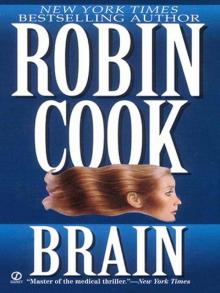 A Brain
A Brain Year of the Intern
Year of the Intern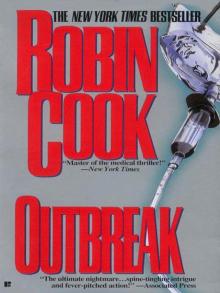 Outbreak dmb-1
Outbreak dmb-1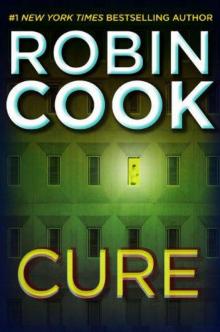 Cure
Cure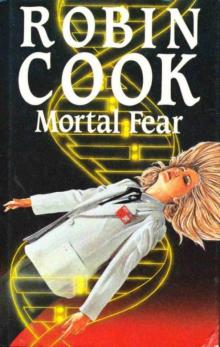 Mortal Fear
Mortal Fear The Legend of Parzival
The Legend of Parzival Vital Signs dmb-2
Vital Signs dmb-2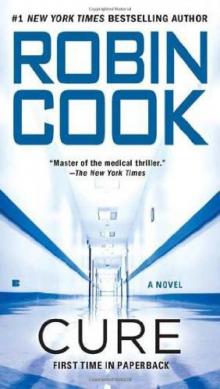 Cure (2010) sam-10
Cure (2010) sam-10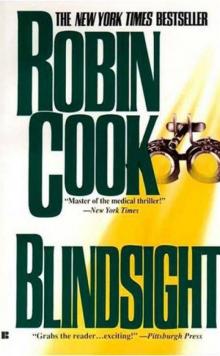 Blindsight sam-1
Blindsight sam-1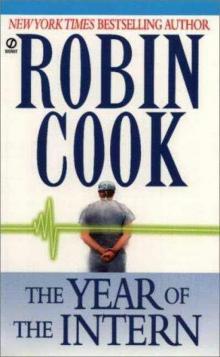 The Year of the Intern
The Year of the Intern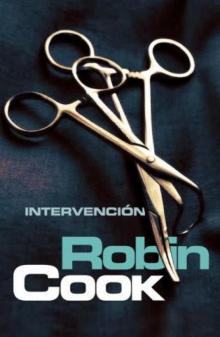 Intervention sam-9
Intervention sam-9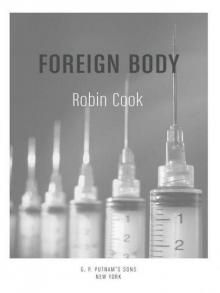 Foreign Body sam-8
Foreign Body sam-8